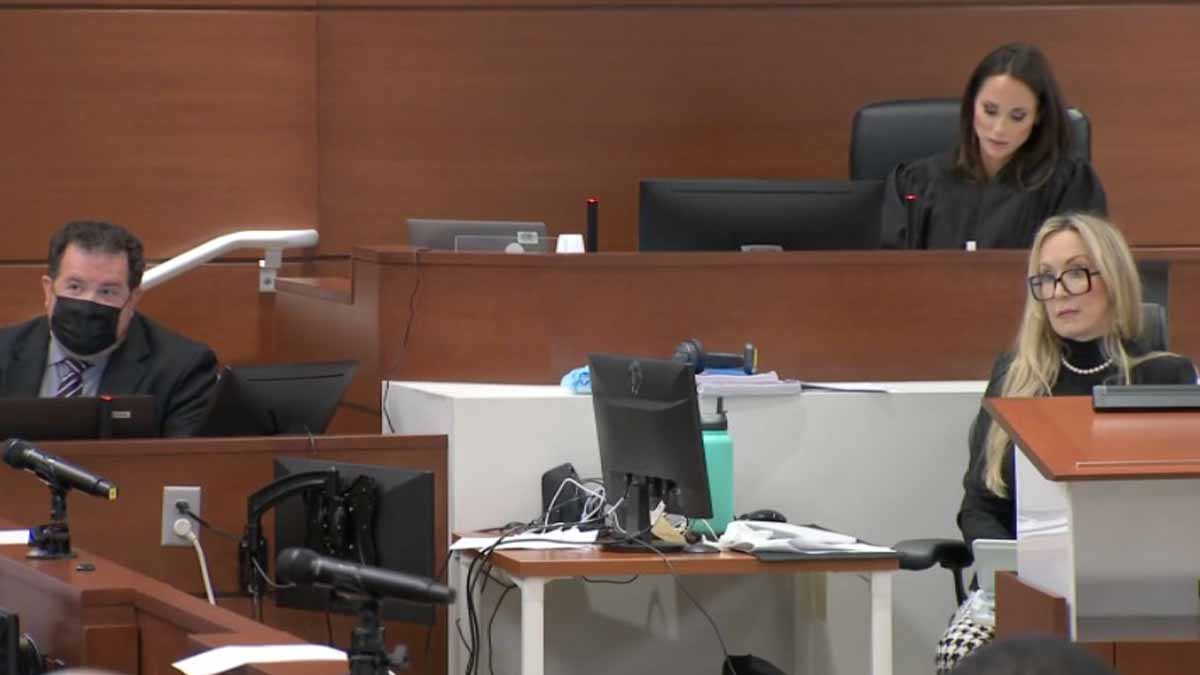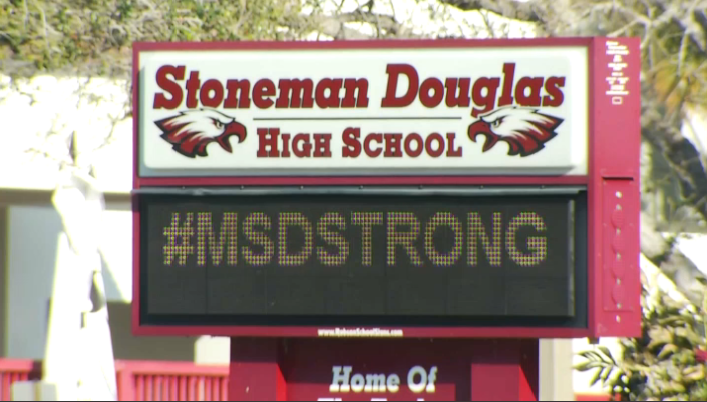The defense team for Parkland school shooter Nikolas Cruz moved to withdraw from the case Monday, after the judge overseeing the death penalty sentencing hearing ordered them to continue with jury selection Monday, despite the absence of one of the attorneys on the case.
“Right now I don’t feel confident representing Mr. Cruz,” said lead defense attorney Melisa McNeill after Judge Elizabeth Scherer ordered her to participate.
“I now have to consider whether or not my liberty is going to be in jeopardy or Mr. Cruz’s liberty is going to be in jeopardy,” McNeil said in asking for a recess. “I’m also going to have to consider whether or not my law license can be impacted, which would impact my ability to raise my children, feed my children and educate my children.”
The Hurricane season is on. Our meteorologists are ready. Sign up for the NBC 6 Weather newsletter to get the latest forecast in your inbox.
Directly disobeying a court order could result in someone being held in contempt, although Scherer did say she had no intentions of doing so in this matter.
Still, McNeill said, “If you’re ordering me to do that and I fail to do that, I’m at risk of being held in contempt because I’m in a battle now between my liberty and my client’s liberty.”
The judge denied the motion to withdraw, and when McNeill subsequently asked for a delay to research her options, Scherer said, “You’re forcing me by giving you more time and more time to give you a continuance.”
After further back and forth, the judge relented, calling a one hour, 50 minute recess until 1 p.m.
The latest twist in the monthslong jury selection process came Monday after McNeill said the defense would not participate in jury selection, beyond asking potential jurors if they had economic or personal hardships, because one of her co-counsel, an experienced death penalty litigator, was out sick Monday.
The judge denied the request, saying she would allow questioning into such things as opinions on the death penalty, but the defense persisted – something Scherer characterized as a “threat” to disobey her order.
Before calling a recess, the judge advised McNeill to consult the Florida Bar about the ethics of intentionally disobeying a court ruling, as if that were a strategic decision laying the groundwork for an appellate issue of whether the killer was provided effective assistance of counsel.
After a 40-minute recess, McNeill stood her ground, saying, “I am not trying to interject ineffective assistance of counsel in this case. I am trying to prevent it from happening, but going forward without Mr. Secor, that would be ineffective.” The attorney, Casey Secor has COVID and is under CDC-recommended quarantine until tomorrow, McNeill said.
The state did not object to the request for the one-day continuance, McNeill said.
But assistant state attorney Jeff Marcus said the defense has four competent attorneys that would “merely” be participating in death penalty qualification. “The defendant is in no danger of not receiving competent representation for the stage that we’re in … we’re just doing one little segment of the case,” Marcus said.
Parkland School Shooter Trial
The state was not asking for the defense to be held in contempt of court, Marcus said, but asked the defense reconsider their position. “The defense may think this is not optimal, but that’s not the standard.”
Judge Scherer said if an attorney doubts validity of court order, they are obligated to challenge them – but cannot disobey them.
“I too would urge the defense to reconsider their position I believe it is an ethical violation … I don’t intend to have any contempt proceedings,” the judge said. But she said it would be a clear violation of Florida law and ethical responsibilities.
“Your remedy is to file and appeal, your remedy is not to disregard court procedure,” she said. “We are going forward. We are going to bring the jury in.”
Scherer said she would question the defendant to make sure he understands he is waiving his rights to appeal to argue his counsel was ineffective, based on Secor’s absence Monday.
“I will instruct my client not to answer those questions,” McNeill said.
Scherer then issued her order requiring the defense to participate, prompting the motion to withdraw and the midday recess.
This all comes as the killer of 17 at Marjory Stoneman Douglas High School in 2018 asked his death penalty jury selection process put on hold, arguing “the wave of emotion surrounding the recent mass shootings” creates “bias and prejudice against him” among potential jurors.
The defense motion for continuance, filed last Friday, has not yet been raised in court Monday morning, when Judge Elizabeth Scherer resumes jury selection after a 10-day hiatus.
So far, 35 potential jurors have made it through two rounds of questioning.
The killer, Cruz, has pled guilty and the only question for the jury is whether he should get a death sentence or life in prison without parole.
In seeking a delay for “a reasonable period of time,” the defense cited publicity over recent mass shootings in Buffalo, N.Y., and Uvalde, Tex., as well as media comparisons between the Parkland massacre and the school shooting in Uvalde, which killed 19 students and two teachers.
“To make any attempt to conduct a fair, constitutional trial in the wake of the Uvalde and Buffalo tragedies would be futile,” McNeill argued in the motion.
The state has not yet responded in court filings, but has in the past argued the events in Texas do not impact what is happening in the 17th floor courtroom in Fort Lauderdale.
The defense says the Uvalde shooting has “reopened old wounds” in Parkland and triggered protests against gun violence, like those that occurred after the Feb. 14, 2018 crimes at Stoneman Douglas.
“Under the current circumstances,” the defense stated, “ it may be extremely difficult for jurors to put those feelings aside and not consider these other shootings in making their moral determination regarding the appropriate sentence in this case.”



